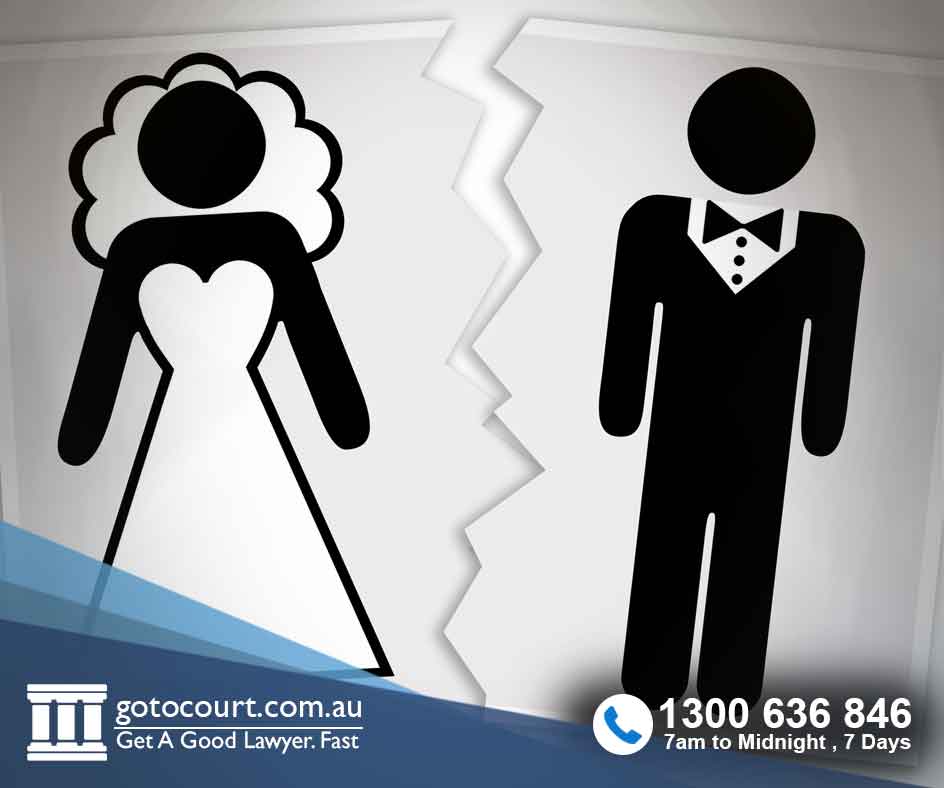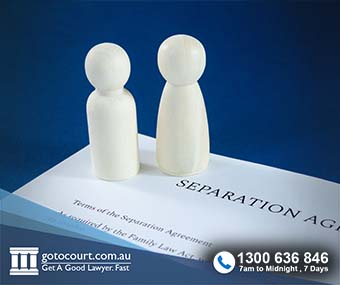Counselling in Divorce Matters
Counselling in Divorce Matters
A lot of couples who experience marital issues attend counselling. Sometimes a separated couple will attend counselling to try and resolve their problems and hopefully reconcile. In fact, it is a legal requirement for some separated couples to attend counselling before they are eligible to file an Application for Divorce with the Federal Circuit and Family Court of Australia. This page looks at the requirement for counselling in the divorce process in Australia.
Requirement for counselling in Australia
Not all couples who wish to apply for a divorce in Australia need to attend marriage counselling. Only couples who have been married for a short period are subject to this requirement. Couples who have been married for less than two years (calculated from the day of marriage to the date of Application for Divorce) can only make a divorce application in Australia if they:
- Attend counselling with an approved family counsellor to discuss the prospect of reconciliation; or
- With the permission of the court.
Other mandatory counselling in family law
Although most couples are not required to attend counselling before seeking a divorce, counselling is mandated for other Family Law processes, including parenting and property matters.
Purpose of mandatory counselling
The Family Law Act 1975 describes counselling as a process to help people to deal with personal and interpersonal issues in regard to their marriage. The law requires couples seeking to end short marriages to at least explore the possibility of reconciliation at a counselling session. The purpose of this requirement is to ensure that the couple has considered all the options to improve the relationship before proceeding with a divorce. Presumably, this requirement is applied to shorter marriages to prevent couples from seeking an impetuous divorce when they encounter the first difficulties of married life.
Counselling certificate
Of course, not every situation can be resolved through counselling. In many cases, the couple will attend the counselling session but still want to proceed with their divorce. If the counselling has not been successful in resolving the issues and prompting a reconciliation, the counsellor will sign a certificate at the end of the session. This certificate states that, in the opinion of the counsellor, the marriage is irreconcilable. This certificate must be attached to the Application for Divorce when it is filed online with the court.
Qualified counsellors
Only appropriately qualified counsellors are authorised to complete the counselling certificate. The court provides a list of qualified counsellors (such as those listed on the Family Relationships site). However, if the separated couple have previously attended other forms of counselling (such as with a member of their church) in an attempt to resolve their problems, this counsellor can complete the certificate. The court will then determine whether the certificate is sufficient to satisfy the statutory requirements for a divorce application. If the certificate is not accepted, the separated couple will be required to attend an additional session with a qualified counsellor.
Special circumstances
A person seeking a divorce may be able to skip the requirement for counselling in certain circumstances. If an applicant believes that they would qualify for an exemption, they can seek the permission of the court at the same time as they file the Application for Divorce. To seek an exemption, the applicant needs to provide an affidavit setting out why they are not able to provide an appropriate counselling certificate. The affidavit also needs to be served on the other party.
Definition: Affidavit
An affidavit is a written statement sworn or affirmed as true in front of a Justice of the Peace or lawyer.
Examples of special circumstances
The court may provide a waiver to the requirement for counselling if the applicant cannot locate their spouse. The court will only grant the waiver on this basis if the applicant has taken all reasonable steps to locate their spouse, so the affidavit should list all of the applicant’s efforts. The court may also provide a waiver if the applicant’s spouse refuses to attend counselling. In that case, the affidavit should describe the efforts to invite the other party to counselling.
The court is particularly sympathetic to applicants who cannot attend counselling because of fears for their own safety or the safety of other people. A history of domestic abuse in the marriage is a persuasive reason for an applicant to seek a waiver so that they do not need to attend counselling with their abuser.
Sometimes a person does not wish to attend counselling, but does not have a valid reason to avoid the counselling requirement. In that case, it is often preferable for the applicant to wait out the two-year time period so they can file for a divorce without the counselling requirement.
Go To Court Lawyers can answer any questions you have about the requirement for counselling when applying for a divorce in Australia. Our Family Law team can provide assistance with any aspect of the divorce process, the division of marital assets and negotiate parental agreements. Please contact our solicitors on 1300 636 846 for experienced legal advice.

Affordable Lawyers
Our Go To Court Lawyers will assist you in all areas of law. We specialise in providing legal advice urgently – at the time when you need it most. If you need a lawyer right now, today, we can help you – no matter where you are in Australia.How It Works




1. You speak directly to a lawyer
When you call the Go To Court Legal Hotline, you will be connected directly to a lawyer, every time.

2. Get your legal situation assessed
We determine the best way forward in your legal matter, free of charge. If you want to go ahead and book a face-to-face appointment, we will connect you with a specialist in your local area.

3. We arrange everything as needed
If you want to go ahead and book a fact-to-face appointment, we will connect you with a specialist in your local area no matter where you are and even at very short notice.

















